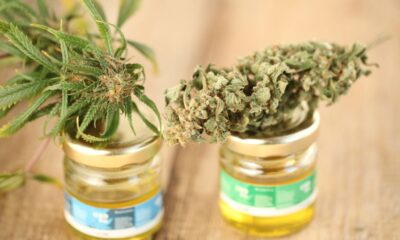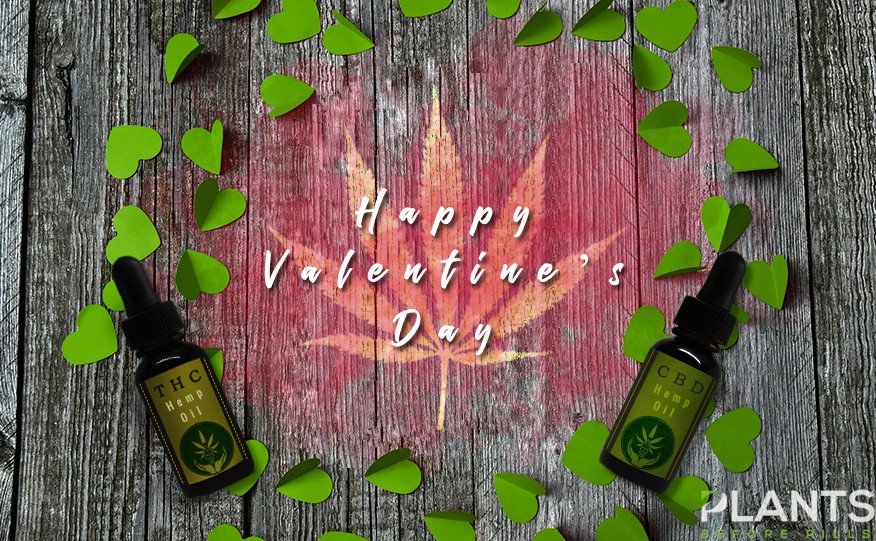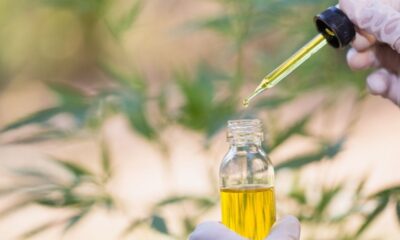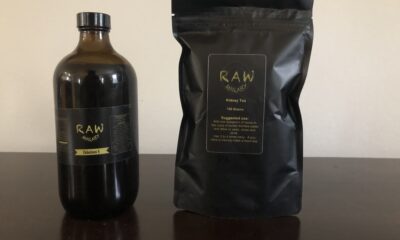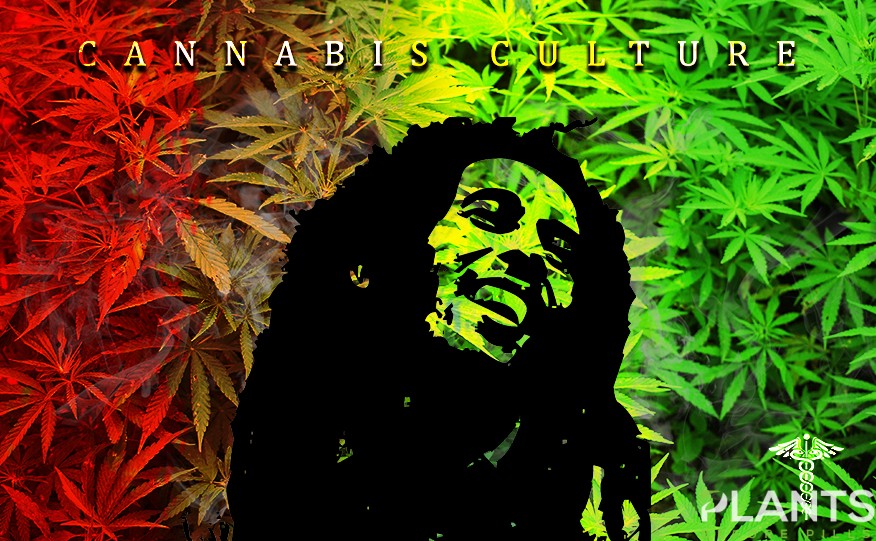Delta-8 THC
Discover What Delta-8 THC is and Where to Get it Legally
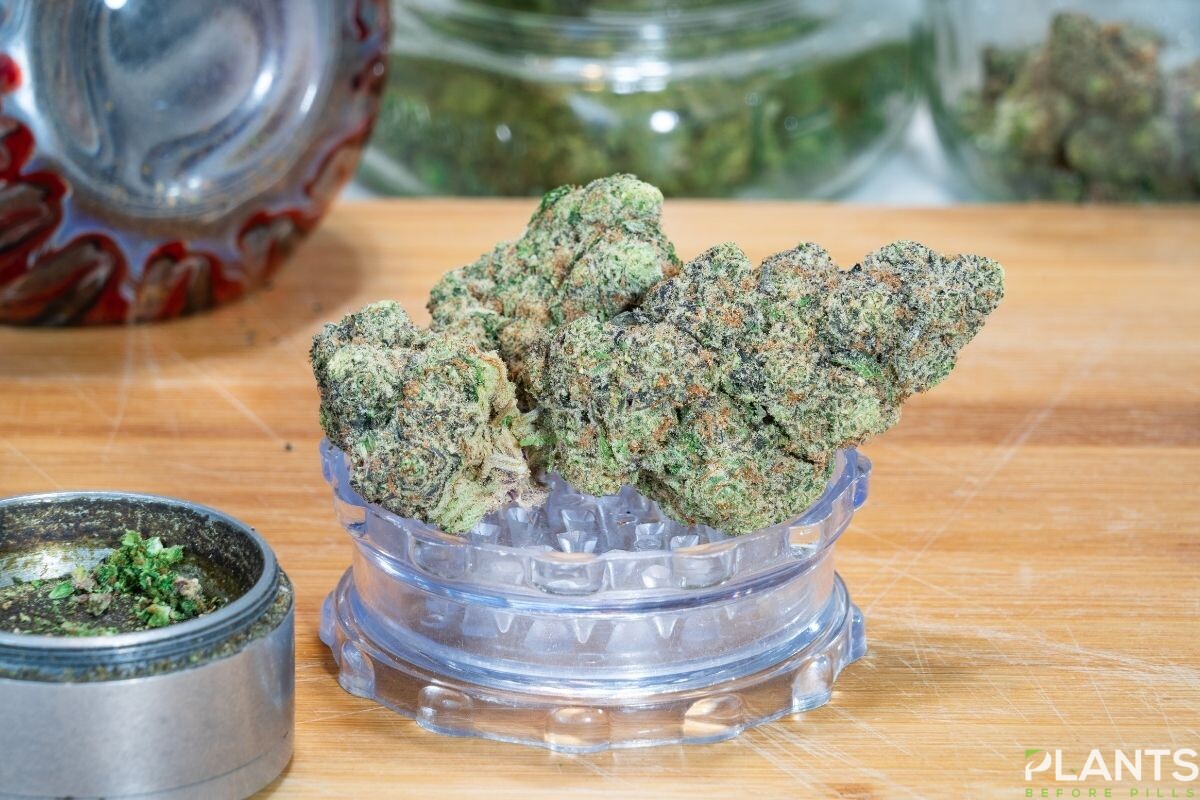
When talking about the potentials of cannabis and its cannabinoids, two of the most popular chemical compounds found in the plant always come up namely cannabidiol and delta-9 tetrahydrocannabinol, commonly known as THC. What many people neglect to recognize is that there are more than 130 cannabinoids in the plant.
One of these is the lesser-known delta-8 tetrahydrocannabinol (delta-8 THC), which is different from the more commonly known delta-9 THC. This compound recently gained popularity and many members of the cannabis community are becoming more interested in trying it out. If you are one of these people, here’s what you need to know.
Introducing Delta-8 THC
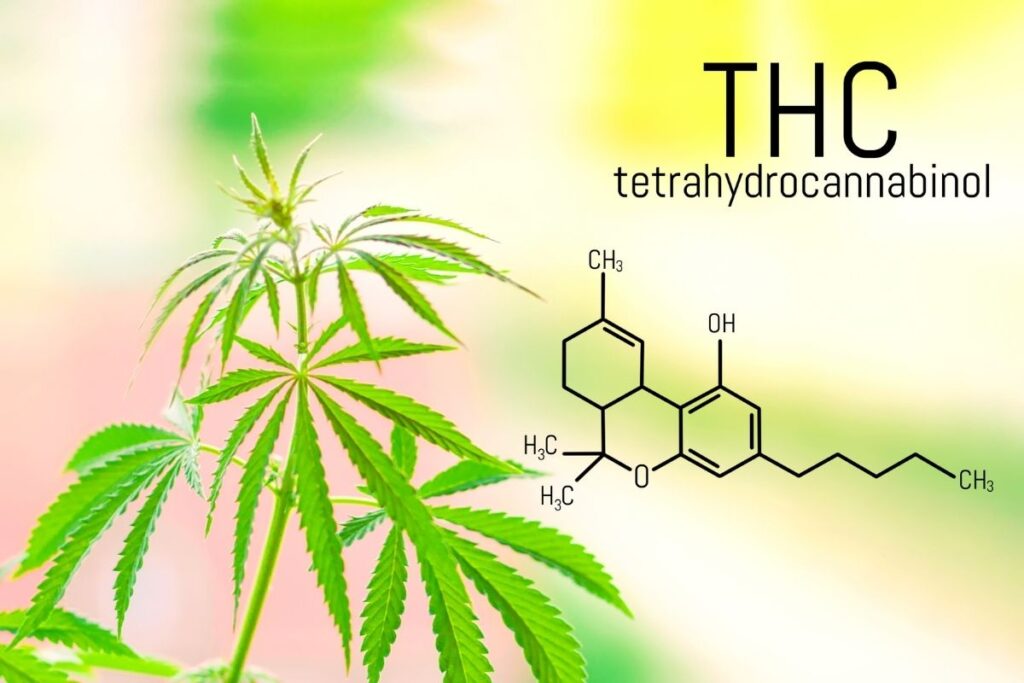
Delta-8 THC is a psychoactive compound present in the cannabis plant. It bears a similar structure to delta-9 THC, more commonly known as simply THC. Both cannabinoids have a double bond in their carbon chains, however, they have differences that influence how it affects consumers. This variance rests on the placement of the double bond. For delta-8 THC, the double bond is found on the eighth carbon chain, while it is located in the ninth double chain in delta-9 THC. Delta-8 is also considered more stable than delta-9.
Given these differences, the two compounds also have slightly varying effects on consumers. When talking about these properties, it is first important to talk about the effects of psychoactive agents, seeing that the delta-8 and -9 THC are both psychoactive chemicals. These compounds are known to produce a high that offers a euphoric and sedated feeling. However, the effects of delta-8 are much milder than delta-9.
Another essential difference between the two is that delta-9 is found in abundance in the cannabis plant, while delta-8 is not. In fact, there are no significant concentrations of delta-8 in the plant, but most especially in the hemp variety. What many manufacturers do to produce delta-8 supplies is to make it from CBD.
So, Where Can You Get It?
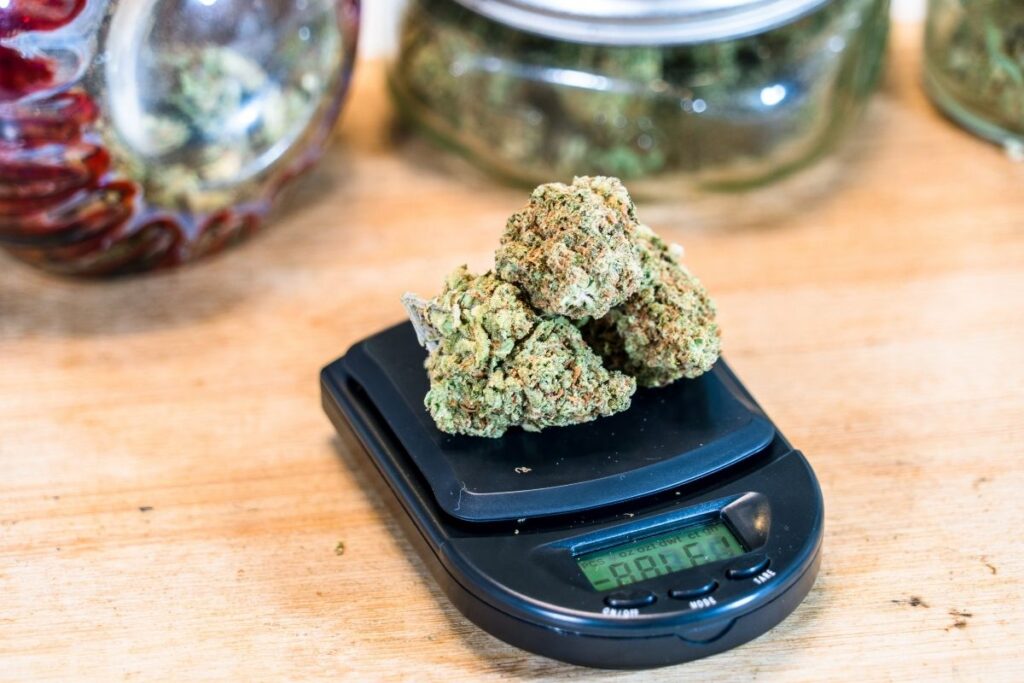
In the topic of legality in the United States, the first thing we need to talk about is the 2018 Farm Bill and its implications. This law delisted hemp from the list of illicit crops, allowing farmers to legally cultivate, harvest, and sell hemp which is known as a high-CBD and low-THC plant. The law defines hemp as a cannabis plant with only 0.3% THC or less. This technically makes it federally legal to consume hemp in all forms, particularly extracted CBD, which can be used to create delta-8 THC. Delta-9 can also be converted to delta-8 THC.
However, it is important to remember that particular states have created laws that specifically outlaw particular substances such as CBD, delta-8, and delta-9 THC. Currently, there are 12 states that prohibit delta-8 THC namely Alaska, Arizona, Arkansas, Colorado, Delaware, Kentucky, Idaho, Iowa, Mississippi, Montana, Rhode Island, and Utah. Alabama, North Dakota, and Oregon are looking into bills to ban it.
The rest of the states either allowed the distribution and consumption of this substance or have no specific laws to prohibit it. Interestingly, the United States Hemp Authority, which certifies hemp products, did not endorse delta-8 products as they are marketed for their psychoactive effects. Moreover, the agency takes a stand that the law only allows a total THC concentration of 0.3%, and with delta-8 being a THC compound, products cannot exceed this threshold.
The Bottom Line
The laws surrounding delta-8 THC as of this moment remains hazy, especially as hemp products are considered legal only through technicality. Nevertheless, consumers in states where cannabis is fully legal can definitely go out and try what delta-8 products have to offer and see the difference for themselves.
Medical Disclaimer:
The information provided in these blog posts is intended for general informational and educational purposes only. It is not a substitute for professional medical advice, diagnosis, or treatment. Always seek the advice of your physician or other qualified healthcare provider with any questions you may have regarding a medical condition. The use of any information provided in these blog posts is solely at your own risk. The authors and the website do not recommend or endorse any specific products, treatments, or procedures mentioned. Reliance on any information in these blog posts is solely at your own discretion.

Delta-8 THC
What Is The Difference Between Delta 8 and Standard Weed?
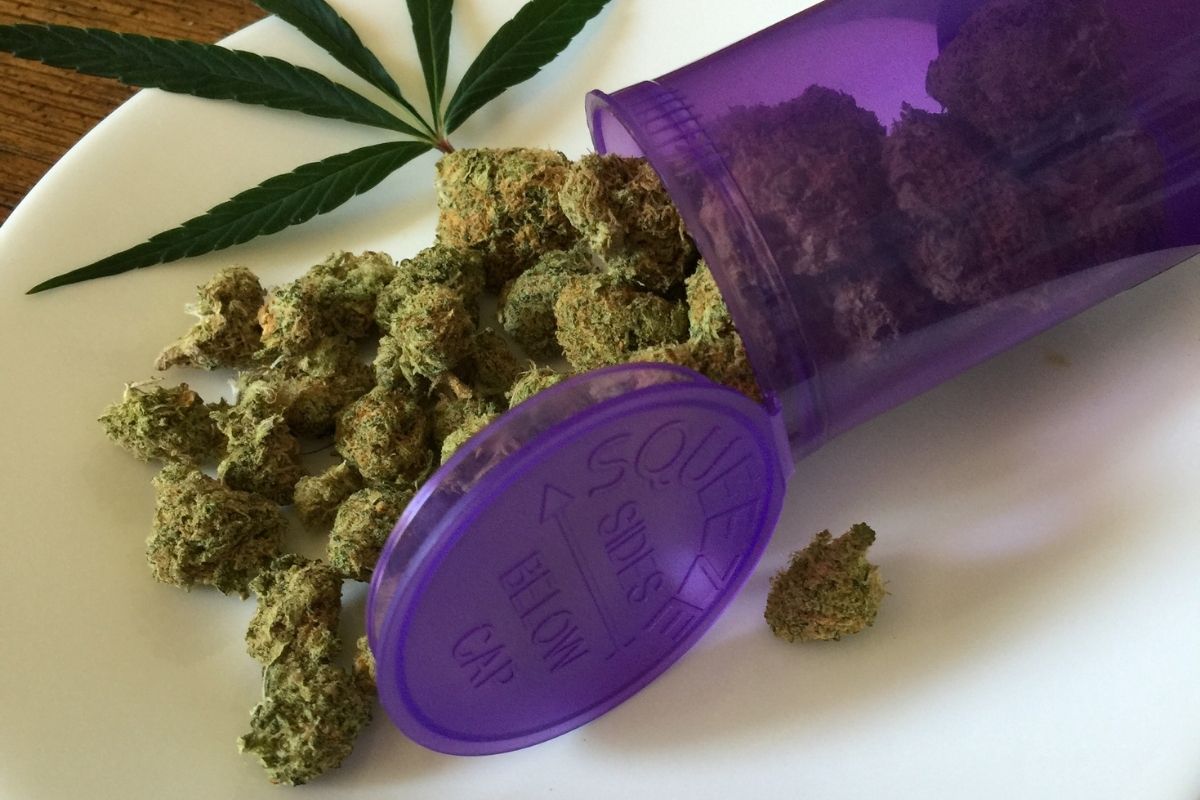
There are many different kinds of marijuana, each with its own potency, effects, and chemical makeup. When it comes to Delta-8 THC, there are some differences between regular weed and this type of cannabis. This article will explain what those differences are so you can decide if Delta-8 is right for you or not.
Legal Considerations
In states where delta-8 is legal, the difference between it and its more popular counterpart stems from its chemical makeup. Delta-8 THC is a tetrahydrocannabinol (THC) precursor and has been found to have medical benefits, while delta-9 THC is what produces the high that most people associate with marijuana use.
The difference can be confusing for some users who would otherwise assume that any type of cannabis plant would produce similar effects. However, there are some important legal considerations about which cannabinoids you are ingesting when buying weed that you should keep in mind.
In addition to being illegal at the federal level and not approved by the FDA as an accepted drug treatment option for any condition, delta-8 products are not permitted in every state either—even those where recreational or medical use of cannabis is legal under state law (e.g., California).
The Chemical Differences Between Delta-8 and Regular Weed
- Delta-8 is a non-intoxicating compound.
- Delta-8 is also known as CBN or cannabinol.
- It’s a cannabinoid, but it doesn’t get you high—it won’t make you feel happy, hungry, or relaxed like THC JD does—in fact, it has no psychoactive effects at all.
- Its chemical structure is different from delta-9; delta-8 is converted into delta-9 after smoking it (although this process isn’t very efficient).
The Effects of Delta-8 and Regular Weed
The effects of Delta-8 and regular weed are very similar. Both types of cannabis have been used for medical purposes for many years, but recently, there has also been an increased interest in recreational use. In fact, some people claim that Delta-8 is a slightly less potent version of regular weed.
While it’s true that both types of cannabis affect the brain similarly (and produce similar effects), it should be noted that medical users may face different side effects from recreational users or spiritual practitioners who use the drug recreationally or religiously, respectively.
Availability
Delta-8 is available in some states and territories but not all of them. If Delta-8 isn’t currently available in your area, it’s probably because the state or territory you live in hasn’t approved the use of this particular strain yet. In Canada, however, Delta-8 is not allowed at all.
While Delta-8 and standard weed have a lot in common, there are also some important differences.
When looking at your bud’s chemical composition, there are two main compounds you need to know about: delta-9 THC (THC for short) and Delta-8 THC.
Delta 8 is the second most abundant cannabinoid found in cannabis, after THC. It’s often confused with delta 9 because it shares similar effects when smoked or eaten–namely, an intense high that can last up to 14 hours!
Conclusion
In conclusion, we can say that Delta-8 and regular weed are very similar. There are some important differences between the two, but the overall effect is the same. Both types of marijuana will give you a feeling of euphoria and relaxation. The different chemical compositions make them more or less effective at treating certain conditions, so it’s important to know what kind of strain you want before purchasing it from your local dispensary or online retailer. If you have any questions about which type of cannabis would be best for your needs, then please ask us!
Medical Disclaimer:
The information provided in these blog posts is intended for general informational and educational purposes only. It is not a substitute for professional medical advice, diagnosis, or treatment. Always seek the advice of your physician or other qualified healthcare provider with any questions you may have regarding a medical condition. The use of any information provided in these blog posts is solely at your own risk. The authors and the website do not recommend or endorse any specific products, treatments, or procedures mentioned. Reliance on any information in these blog posts is solely at your own discretion.
Delta-8 THC
Some Well-Known Benefits of Delta-8

You may have heard of CBD and THC, but have you heard of Delta-8? While it’s less well-known than its cousins, delta-8 has some great properties that could help with nausea and vomiting. There has been a lot of press about Delta-8, and for good reason. Here are a few things you should know about this helpful cannabinoid:
Delta-8 is a safe cannabinoid
Another benefit of Delta-8 is that it is not addictive. Unlike marijuana, this natural compound does not produce a high or give you the feeling of being stoned. This makes it ideal for people who are trying to stop smoking cannabis. Since there are no side effects, you can use Delta-8 as often as necessary without worrying about becoming dependent on the substance or developing physical dependence.
The second benefit of Delta-8 is that it doesn’t come with any harmful side effects and isn’t toxic in any way whatsoever. Even if someone accidentally swallows some Delta-8 (which requires consuming about 1 kilogram), there will be no adverse consequences whatsoever because it won’t cause any harm to the body at all!
You can benefit from Delta-8 without the relaxing effects of THC.
Delta-8 is a non-psychoactive cannabinoid that can be found in cannabis. In fact, Delta-8 is actually a decarboxylation product of CBD and THC, meaning it’s derived from the same parent compounds. The difference between Delta-8 and other cannabinoids like CBD or THC is that it lacks any relaxing effects. This means you can benefit from all the benefits of Delta-8 without feeling sleepy or sedated—in fact, it may even help you stay awake!
Delta-8 could help with nausea and vomiting.
The most common use of Delta-8 is to help prevent nausea and vomiting. Delta-8 is an anti-nausea and anti-emetic compound, meaning that it reduces feelings of sickness in the body. This can be very useful when experiencing extreme nausea caused by chemotherapy, radiation therapy, or pregnancy.
Delta-8 is less well-known than CBD or THC but has some great properties.
It’s less well-known than CBD or THC but has some great properties. For example, it could help with nausea and vomiting. It’s also a safe cannabinoid to use as part of your daily routine because it doesn’t have psychoactive effects like THC does, so you won’t feel high or stoned after taking Delta-8 supplements. Hodgetwins delta-8 is a product line you can try out if this is your first experience with Delta-8.
Conclusion
We hope you’re as excited about the benefits of Delta-8 as we are. This compound is a natural alternative to THC and CBD, so it can help with pain relief without making you feel high. It also has anti-inflammatory properties that could be useful for people who suffer from inflammatory conditions like arthritis or IBS. In addition, Delta-8 may have some benefits for those fighting cancer—especially when combined with other drugs like chemotherapy or radiation therapy—because it targets specific receptors in cells that might make them more vulnerable to these treatments. The bottom line? You don’t need to smoke pot anymore because many other ways are now available!
Medical Disclaimer:
The information provided in these blog posts is intended for general informational and educational purposes only. It is not a substitute for professional medical advice, diagnosis, or treatment. Always seek the advice of your physician or other qualified healthcare provider with any questions you may have regarding a medical condition. The use of any information provided in these blog posts is solely at your own risk. The authors and the website do not recommend or endorse any specific products, treatments, or procedures mentioned. Reliance on any information in these blog posts is solely at your own discretion.
Delta-8 THC
Can Delta 8 Vape Help With Anxiety
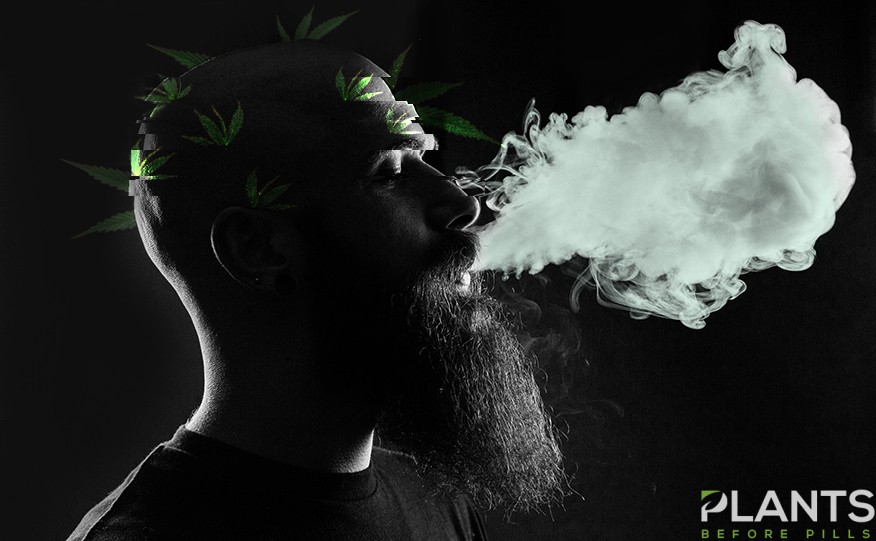
We all experience anxiety from time to time, and it can be a major problem for some people. The question is: what can we do about it? Delta 8 vape has become one of the most popular ways to manage anxiety, but how does it work? And should you try it? In this article, we’ll explore the legal status of Delta 8 vape as well as the benefits and side effects associated with using this substance. We’ll also discuss whether or not there are any other alternatives to dosing on your own with Delta 8 vape when dealing with anxiety issues.
What Is Delta 8 Vape?
Delta 8 vape is a type of vaporizer that uses a cannabis extract. It contains high levels of delta-8 THC, which is an active ingredient in cannabis. Delta 8 vape is not legal in all states but can be used as a medical treatment or recreational drug. You can get an all-in-one vape device or buy a Delta-8 vape cartridge and the proper battery to power it.
Delta 8 vape is made with THC and CBD, the two most common cannabinoids found in cannabis plants. Delta-8 THC has been shown to relieve anxiety symptoms when consumed orally or through inhalation (unlike regular marijuana).
The Benefits of Delta 8 Vape for Anxiety
- Relaxation: Delta 8 Vape contains an ingredient called L-Theanine that has been shown to relax the body. This can help you to feel calmer and less stressed in social situations, which can sometimes be anxiety-provoking.
- Reduced stress: Stress can cause many issues for people with anxiety, so it’s important to find ways to reduce it. One way is through relaxation, exercise, or meditation, and yet another is by using essential oils like lavender or chamomile as aromatherapy (which you could do while vaping).
- Improved mood: The same goes here with lowering your stress levels! A calm mind will lead to a calmer body overall—meaning that if nothing else works but something good does happen (say when your partner comes home from work), then instead of panicking about all their stresses that day because they’ve been working hard all week long and deserve some time alone with family before heading back into the office tomorrow morning), then maybe just take some deep breaths while sitting down together over dinner tonight instead?
Delta 8 Vape for Anxiety: Facts and Myths
OK, so let’s get one thing straight: Delta 8 vape for anxiety is not a cure. It does not replace medication, and it will never be able to change the way your brain functions. However, it can help you find some relief from the symptoms of anxiety through its relaxing effects on your body and mind.
Delta 8 vape for anxiety can also be used as an alternative to medication—but that doesn’t mean that you should use it as a replacement if you’re already taking prescription drugs for your condition! If you are prescribed medication, don’t stop taking it without first talking with your doctor or pharmacist about switching over to delta 8 vape instead.
Delta 8 vape has some health benefits for anxiety but still has many side effects, as does everything else.
It’s important to remember that there is no cure-all for anxiety and that all treatments have side effects. Delta 8 vape may not be safe for everyone. Remember, it’s also not safe for pregnant women or people under 18.
In addition, it shouldn’t be used by people with certain medical conditions or who take certain medications. It should also not be used in conjunction with alcohol.
Conclusion
It’s important to note that there are many other methods of treating anxiety, including medication and therapy. If you want to use a medical marijuana alternative, then make sure you speak with your doctor first. The bottom line is that all forms of cannabis have risks, but they can also be effective if used correctly and responsibly.
Medical Disclaimer:
The information provided in these blog posts is intended for general informational and educational purposes only. It is not a substitute for professional medical advice, diagnosis, or treatment. Always seek the advice of your physician or other qualified healthcare provider with any questions you may have regarding a medical condition. The use of any information provided in these blog posts is solely at your own risk. The authors and the website do not recommend or endorse any specific products, treatments, or procedures mentioned. Reliance on any information in these blog posts is solely at your own discretion.
Cannabis & Pets
What to Do When Your Pet is Exposed to Delta-8 THC

Humans have been consuming cannabis for a long time. Today, it can be legally prescribed to patients with qualifying conditions in different states, given that they are medical marijuana cardholders. It is also legal for recreational use in 18 states and Washington, D.C.
It is fairly a normal thing for humans to consume marijuana. How about pets? A few years ago, a photo of a dog who got into its owner’s stash of weed cookies made rounds on the Internet. If you are wondering what to do your beloved furry friend gets into your delta-8 stash, here’s what you should know.
Is Delta-8 THC Safe for Pets?

The simple answer to this is no. According to Michigan State University’s College of Veterinary Medicine, marijuana is toxic to cats and dogs because of its delta-9 tetrahydrocannabinol (THC) content.
Keep in mind that delta-8 THC is a sibling of delta-9 THC. They contain the same number of the same types of atoms but in a different arrangement. They have similar effects, but it is at a milder level with delta-8 THC. It is possible that if delta-9 THC is not safe for pets, then delta-8 THC is not either.
Dogs, for example, have more cannabinoid receptors in the brain compared to humans and many researchers believe that they may be more sensitive to its toxic effects. There have been cases of death in two dogs that consumed baked products infused with THC.
It is important to remember that animals have different biologies compared to humans. If a product is potent enough to affect humans, it has a higher potency with animals. Moreover, some items are safe for humans but not for animals.
Take dogs, for example. We can safely enjoy chocolates but it is a deadly substance for canines. Grapes, onions, and other foods are also harmful to them.
Actions to Take When Pets are Exposed to Delta-8
Some think that pets just need to take a rest just like humans do when they consume THC. However, given that they process chemicals differently, it is more responsible to consult a veterinarian if they become exposed to delta-8 THC.
As an owner, you might have trouble telling the veterinarian the truth, but keep in mind that knowing what actually happened is what will help the doctor properly address the situation. They may need to induce vomiting to help your pet eliminate any remaining delta-8 THC in their gut. They can also prescribe antidotes or medications that can help save the life of your pet.
If you are not sure about your pet’s exposure to delta-8 THC, you need to look out for symptoms such as inactivity, lack of coordination, dilated pupils, hypersalivation, sensitivity to movements, sounds, and touch, and incontinence.
Should you observe your furry friend exhibiting these signs, your best bet is to take them to the vet and disclose that they may have had access to delta-8 THC. They may need to do tests such as x-rays and blood tests.
Early detection is the best way to save your pet’s life. If they come out of the ordeal safely, your next step is to make sure that this will not happen again. Keeping your stash in a safe and pet-proof place is your best bet.
Final Thoughts
Delta-8 THC may be one of the best things for many people, but not if it endangers their pets, which can result in their demise. These recommendations are the best way to help save your pet’s life. Plus, more caution is required to safely consume delta-8 THC while having pets at home.
Medical Disclaimer:
The information provided in these blog posts is intended for general informational and educational purposes only. It is not a substitute for professional medical advice, diagnosis, or treatment. Always seek the advice of your physician or other qualified healthcare provider with any questions you may have regarding a medical condition. The use of any information provided in these blog posts is solely at your own risk. The authors and the website do not recommend or endorse any specific products, treatments, or procedures mentioned. Reliance on any information in these blog posts is solely at your own discretion.
Delta-8 THC
Delta-8 THC Products You Can Buy Online
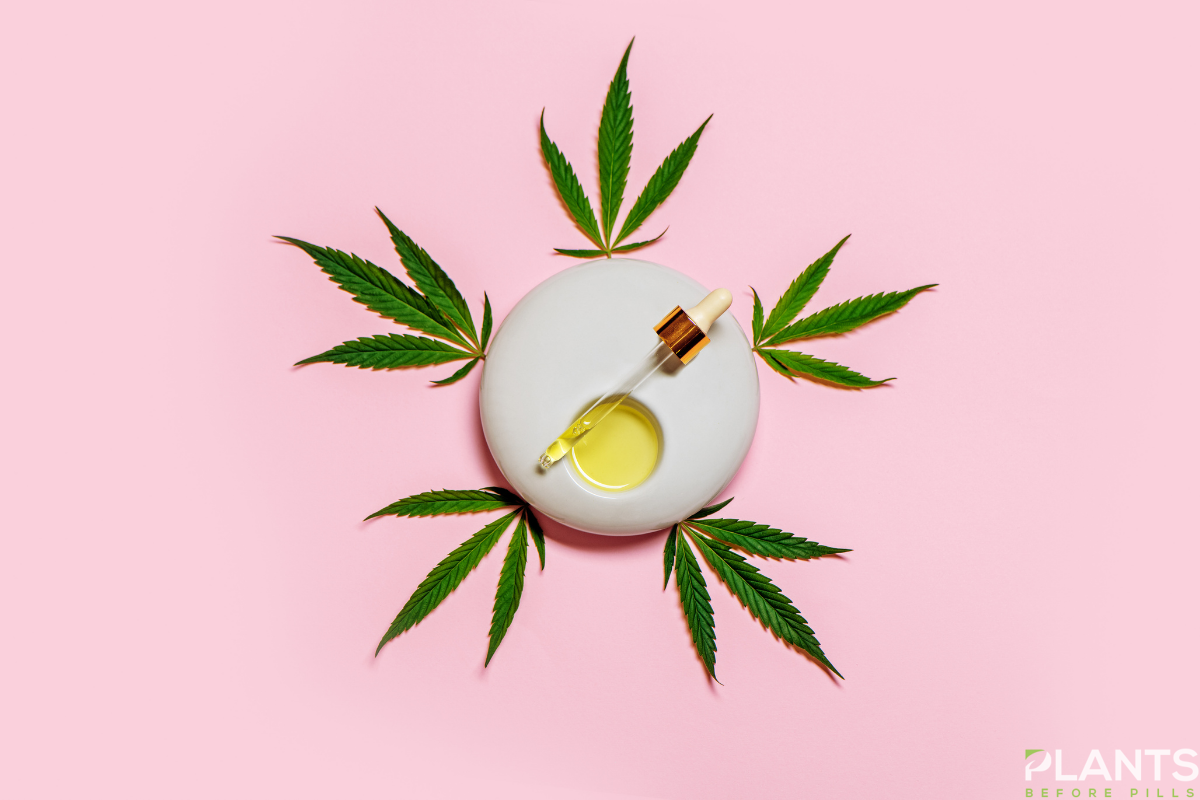
Delta 8 THC has been quietly making its way throughout the country since the legalization of CBD. There are now a number of firms attempting to persuade people to purchase their own brand of delta 8
Vapes, gummy bears, cartridges, and flowers are all legal types of Delta-8 THC products. The popularity of delta-8 THC products has increased since 2020, as more individuals are using them. When it comes to Delta-8 THC goods, there are a lot of brands and alternatives to choose from. For additional information, check out this article.
Best Delta-8 Brands in the Market Today
BudPop
Hemp aficionados like BudPop’s diverse and inventive mixes, which provide a variety of psychotropic effects. BudPop was founded in 2021 with the goal of creating delta-8 THC products that are a superior alternative to traditional THC-containing goods.
Using their impressive thirty-year experience, BudPop’s creators concentrated on creating a wide range of products purely from delta-8 THC. With all of their efforts focused on delta-8 items, they found great success and rose to the top of the delta-8 industry’s list of leading brands.
Gummy bears were the company’s trademark product. Strawberry Gelato and Blue Dream Berry are the two flavors of delta-8 infused gummies. In contrast, the Strawberry Gelato flavor is precisely what its name implies. Both gummies will provide you with the most exhilarating high you’ve ever experienced, and they’ll keep you high all day.
Delta Effex
One of the most impressive Delta-8 packages on this list is Delta Effex’s. One of Delta Effex’s most popular items in 2021 is the rainbow pack gummy. It’s easy to get a euphoric high from the Delta-8 gummy bears.
Green apple, blue raspberry, mystery, strawberry and mango are all included in the rainbow bundle. To get the best results, start with half a gummy daily, according to the manufacturer. Moreover, the Blue Dream Delta-8 cartridge from Delta Effex is a well-liked choice.
The Blue Dream cartridge is legal and has the ability to get you euphoric. In addition, Blue Dream has a lovely scent. Delta Effex hemp flowers can be used by those who like smoking to get a high.
Delta Effex also offers popular alternatives like Focus, Balance, and Chill, based on your individual needs.. Delta Effex can help you relax, enhance your mood, and ease chronic pain.
3Chi
For the most powerful and effective delta-8 THC products, 3Chi delta 8 THC relies mostly on minor cannabinoids. They are now producing delta-8 infused items, including as concentrates, oils, vapes, tinctures, and edibles, which are currently available.
They feature a large selection of foodstuffs, including cookies, cereal snacks, and brownies, all of which contain delta-8. Delta-8 THC gummies and delta-8 tinctures are also available, as well as a variety of other delicacies.
Their vape cartridges also come in a wide range of flavors and strains, so you can pick the one that best suits your needs. Delta-8 THC oil makes up 95 percent of these carts, while the rest is made up of the terpenes of the specific strain. You won’t find VG, PG, PEG Vitamins or MCT in these products.
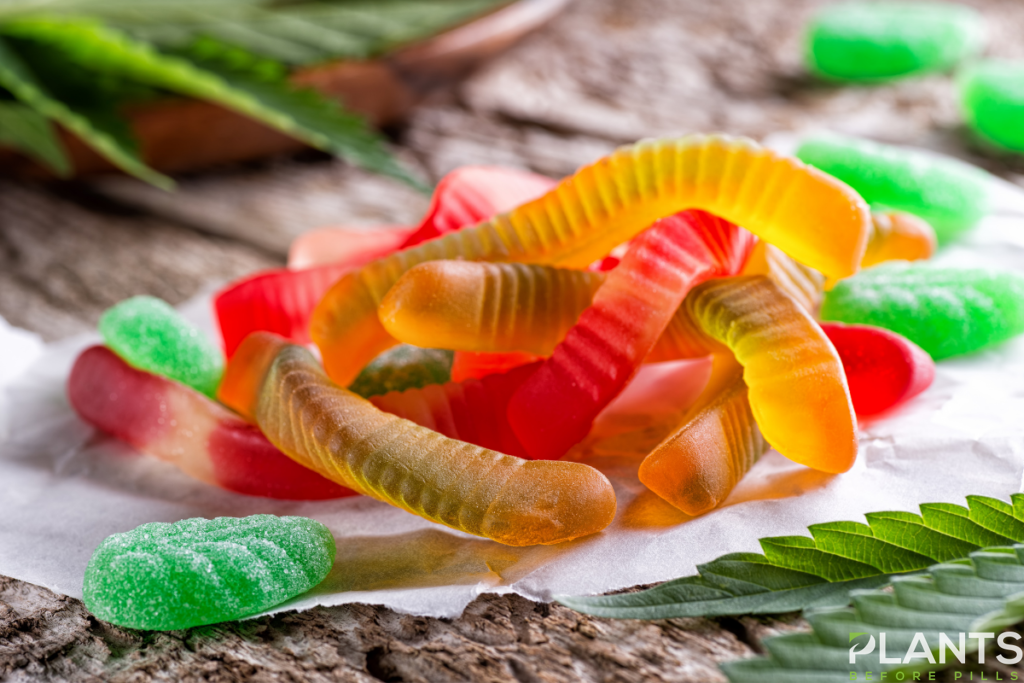
Vida Optima
If you’re looking for an extensive selection of CBD products, you’ve come to the right place! Delta-8 THC products were just released by Vida Optima Company. Elev8 Delta 8 gummies, Elev8 Delta 8 tincture, and Creamy Caramel are some of Vida Optima’s goods.
In addition to cartridges, gummies, flowers, and pre-rolls, Vida Optima offers a variety of other items to its customers. All Vida Optima products, according to the producer, are manufactured from hemp cultivated in the United States, primarily in Oregon, Kentucky, and Colorado.
ATLRx
Delta 8 THC products from ATLRx are vegan-friendly. Before they hit the market, ATLRx products go through rigorous testing in laboratories to ensure they are safe and effective. In terms of ATLRx, the delta-8 diamonds are at the top of the list because of their ability to provide immediate relaxation and pain relief.
Bubba Kush, Blue Dream, Mango Kush, and Pineapple Express are some of the top ATLRx products for relaxing. Flowers, sweets, and tinctures are among the additional Delta-8 options available from ATLRx. From 500mg to 1800mg, ATLRx tinctures are available.
For newcomers to ATLRx products, the company strongly suggests starting at a low dosage. The ATLRx delta eight gummies contain 25mg of active ingredient, so if you’re new to Delta-8 products, start with half of one. Many other flavors of gummies, including lime, mango, strawberry, and orange, are available. Flowers from ATLRx come in a range of strains.
Final Say
The majority of delta-8 THC producers offer their goods online. If you live in a state where delta-8 THC is legal, Delta-8 firms provide delivery services. Delta-8 THC is allowed in some states, but it’s always a good idea to check with your local law enforcement to see whether you may use it. In addition, Delta-8 THC items may be purchased online since it is covert and secure.
Medical Disclaimer:
The information provided in these blog posts is intended for general informational and educational purposes only. It is not a substitute for professional medical advice, diagnosis, or treatment. Always seek the advice of your physician or other qualified healthcare provider with any questions you may have regarding a medical condition. The use of any information provided in these blog posts is solely at your own risk. The authors and the website do not recommend or endorse any specific products, treatments, or procedures mentioned. Reliance on any information in these blog posts is solely at your own discretion.
Delta-8 THC
What That “Delta 8 THC Feeling” is Really Like?

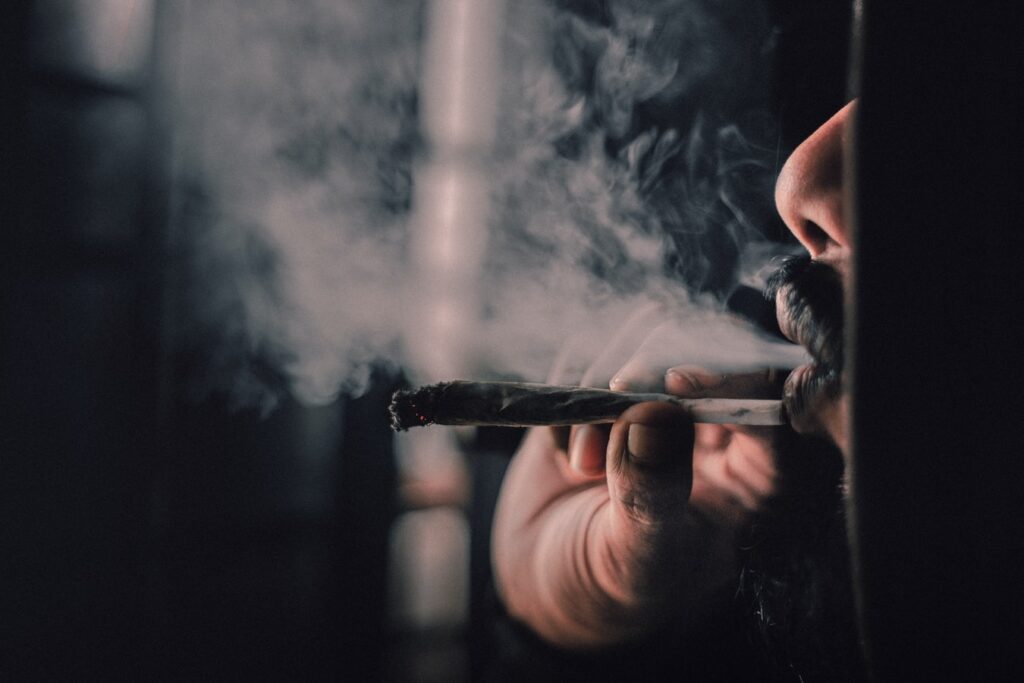
Medical Disclaimer:
The information provided in these blog posts is intended for general informational and educational purposes only. It is not a substitute for professional medical advice, diagnosis, or treatment. Always seek the advice of your physician or other qualified healthcare provider with any questions you may have regarding a medical condition. The use of any information provided in these blog posts is solely at your own risk. The authors and the website do not recommend or endorse any specific products, treatments, or procedures mentioned. Reliance on any information in these blog posts is solely at your own discretion.
Delta-8 THC
What’s All of The Hype About Delta 8 THC?
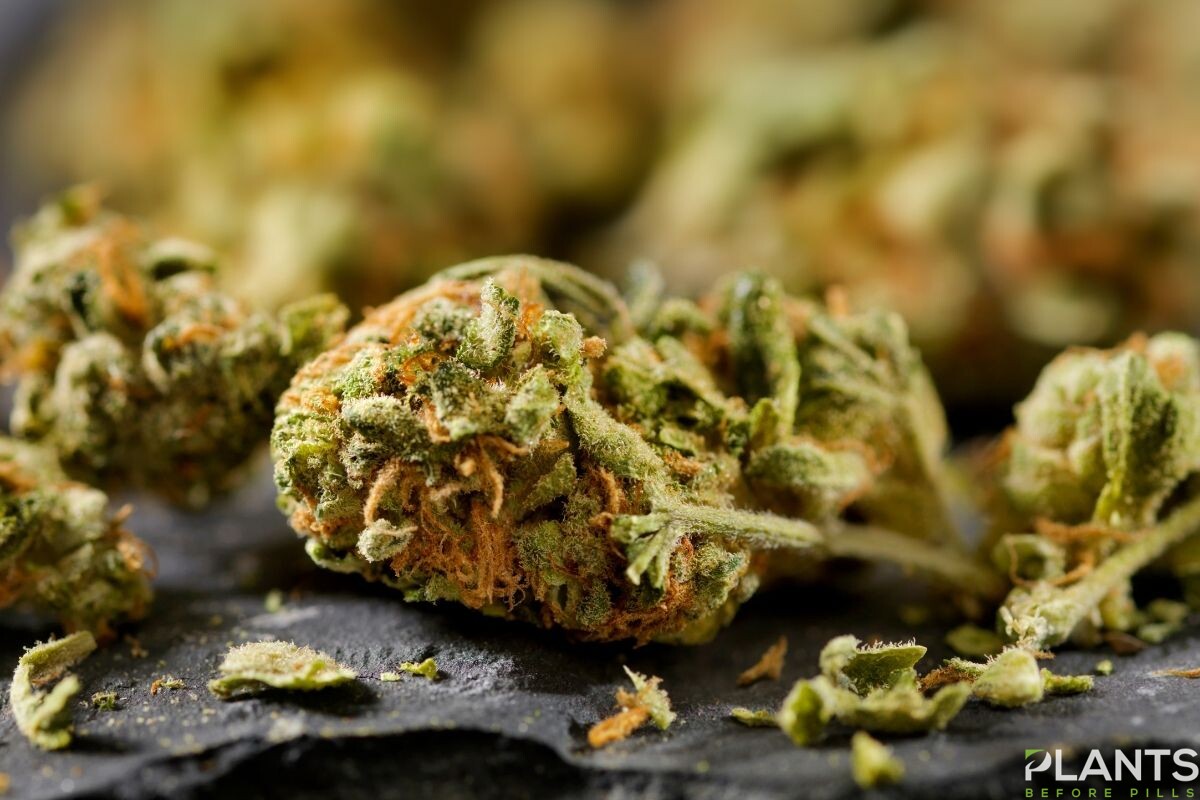
If you’re a health-conscious person that hasn’t been living under a rock these past few years, then chances are, you’ve heard about Delta 8 THC. But what is it, and why should you care? Read on to find out more on the topic. Delta 8 THC is a type of cannabidiol gaining popularity over the last few years due to its anti-inflammatory properties and ability to treat other common ailments. Studies have shown that Delta 8 THC can be an effective treatment for epilepsy, Parkinson’s disease, diabetes, and many other conditions. Delta 8 is also sometimes referred to as “weed-lite” for its lighter euphoric effects compared to standard THC. It has become popular, especially in states that have not legalized recreational marijuana.
What is Delta 8 THC?
In short, Delta 8 THC is a potent cannabinoid found in the hemp plant. It is a derivative of hemp, known as the middle ground between CBD, hemp, and Delta-9 THC. Delta 8 also has some great benefits for the immune system and is also known to help combat nausea. This could be ideal for anyone looking to boost their immune system during the ongoing pandemic and if you suffer from feeling nausea often. Delta 8 THC is an exciting cannabinoid that has been found to have the most potential for treating chronic pain. It was discovered in 1980 by Raphael Mechoulam, an Israeli chemist and professor of medicinal chemistry at Hebrew University. The compound has also been shown to be effective against other illnesses such as irritable bowel syndrome (IBS) and Crohn’s disease. However, more research needs to be done on this promising cannabinoid before it becomes widely available for patients who suffer from these debilitating conditions.
Why it’s so popular
Delta 8 THC is one of the most popular types of cannabis because it delivers a much more balanced and full-bodied experience. Delta 8 THC gives you an uplifting, euphoric feeling that lasts for hours. It’s perfect for those who want to enjoy themselves and have fun but not overdo it.
The best part? Delta 8 THC doesn’t cause paranoia or anxiety like many claim standard marijuana (Delta-9) does. That means you can use it in social settings without having to worry about how it will affect your mood or behavior.
Where to buy Delta 8 THC
You’ve heard about Delta 8 products, but you’re not sure where to buy them. Don’t worry; we have it all sorted out for you. We reviewed the best places to buy Delta 8 products online. One that came to us highly recommended was HippyMood.com. They have a wide variety of Delta-8 THC products as well as CBD and more. We recommend buying from reputable online sources with plenty of verified reviews on multiple platforms such as Google, Weedmaps, and other authoritative websites.
Conclusion
Delta 8 THC is a cannabinoid that has been shown to have pain-relieving and anti-inflammatory properties beneficial for many. This cannabinoid may be the answer for those who suffer from chronic pain or other inflammatory conditions without relying on pharmaceuticals like opioids. Always consult with your physician before starting new treatment to make sure it works well for you.
Medical Disclaimer:
The information provided in these blog posts is intended for general informational and educational purposes only. It is not a substitute for professional medical advice, diagnosis, or treatment. Always seek the advice of your physician or other qualified healthcare provider with any questions you may have regarding a medical condition. The use of any information provided in these blog posts is solely at your own risk. The authors and the website do not recommend or endorse any specific products, treatments, or procedures mentioned. Reliance on any information in these blog posts is solely at your own discretion.
Delta-8 THC
How to Find and Buy Quality Delta-8 THC Products Online
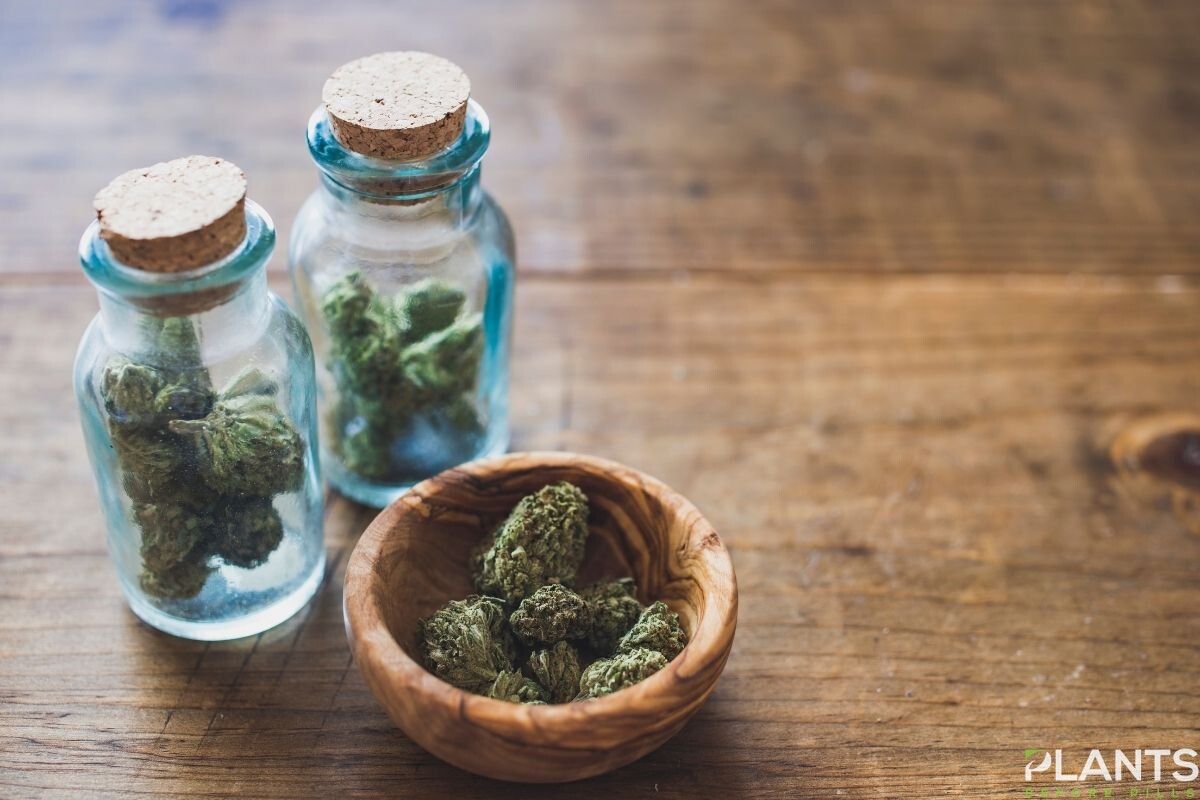
In this article we will talk about Delta-8 THC, why people have become so fascinated with it, and here’s good practices on How to Find and Buy Quality delta-8 THC Products Online… as well as traps to avoid.
What is Delta-8 THC?
Delta-8 THC is short for Delta-8-tetrahydrocannabinol. Like Delta-9 THC it is a cannabinoid derived from marijuana and hemp. Delta-9 THC is often recognized and shortened to simply THC, the element of marijuana responsible for the plant’s psychoactive effects. Delta-8 shares the other derivatives’ euphoric, fuzzy sensation-inducing effects but to a lesser degree. Other effects that accompany THC use, such as drowsiness, paranoia, and anxiety are also less strong with Delta-8.
Because hemp and hemp byproducts are legal to farm thanks to the 2018 Agriculture and Nutrition Improvement Act, Delta-8 products enjoy a legal gray area within which they can be sold and purchased.
However, this legal gray area also means a lack of regulation, lab testing, and oversight when it comes to the rapidly growing Delta-8 industry. This means if you want to purchase and enjoy Delta-8 in its various forms you need to be careful and keep some things in mind.
You should also note that Delta-8’s legal gray area will not last forever as some states are already developing legislation to restrict if not ban the alternative cannabinoid. One of those states is Colorado which has legalized weed for some time. So be aware of the legislation in your state regarding the sale and purchase of Delta-8.
How to Find and Buy Quality delta-8 THC
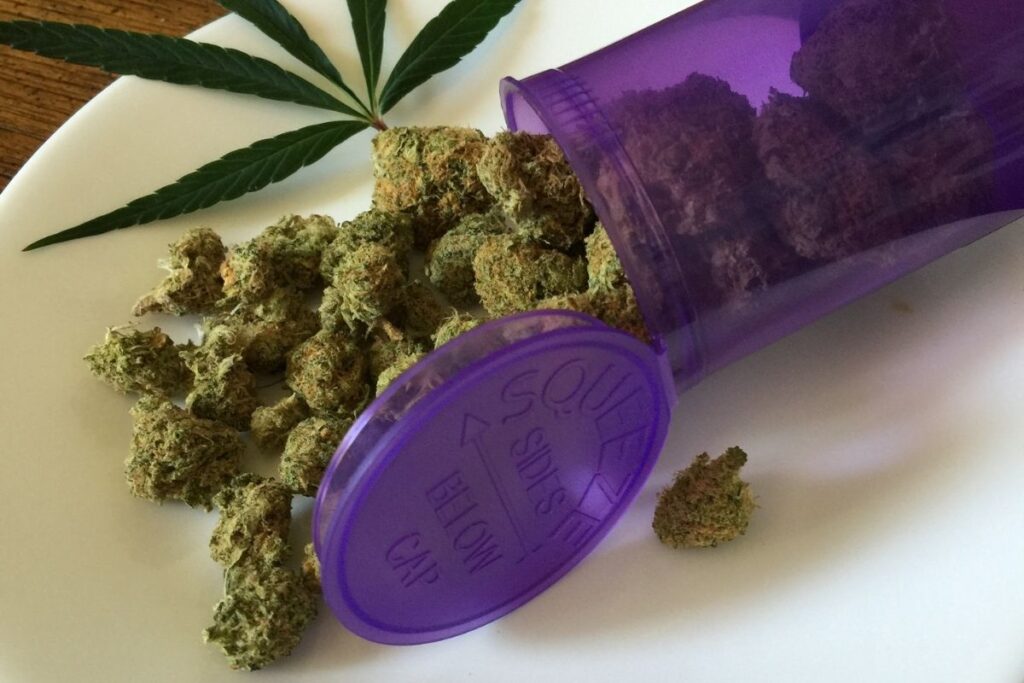
Before 2020 Delta-8 was very much an underground product traded in an underground product. Though finding vendors for ‘marijuana-lite’ online will not be a difficult problem. The problem is finding vendors you can trust. One of the great risks of a legally gray product market are the potential and actual bad actors active within it. Delta-8 products may contain toxic chemicals that have not been properly extracted due to lack of oversight as well as greed and expedience on the producer’s part. They may also have been manufactured in a way that is illegal.
Here are some things to keep in mind on How to Find and Buy Quality delta-8 THC as laid out by Leafly.
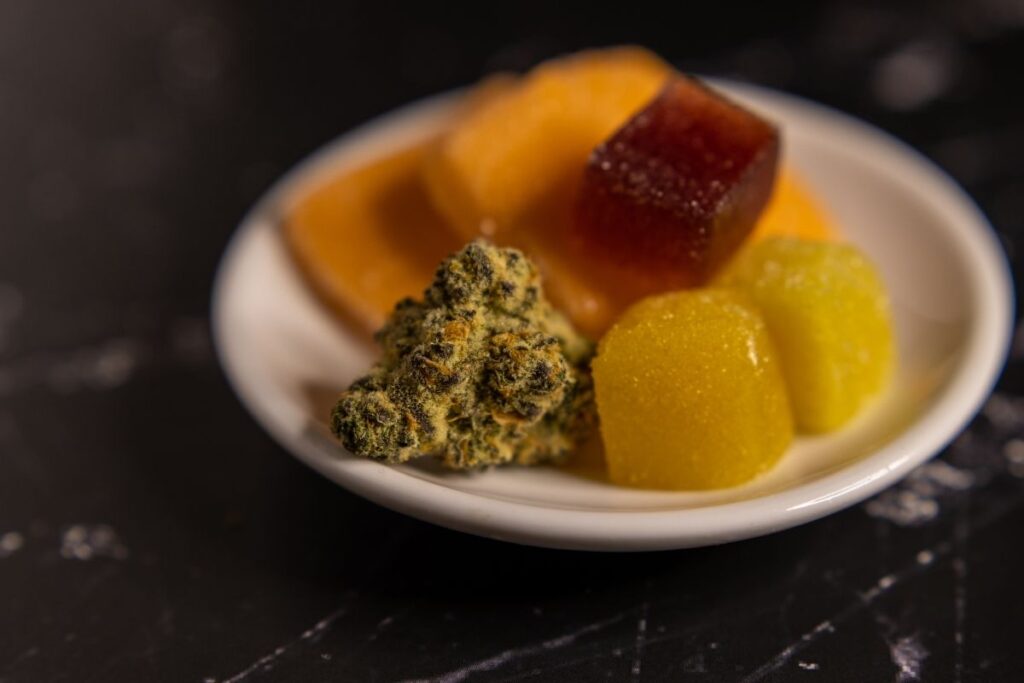
- Licensed Sellers Good– living in a state that has legalized marijuana means there are state-licensed cannabis stores. These are the only stores you should be purchasing Delta-8 from. The products sold from these stores will be both legitimate and quality tested.
- Head Shops Bad– while head shops can be good places to purchase accessories such as rolling paper and glass pieces they should not be where you purchase Delta-8. Head shops do not have to abide by any of the regulatory requirements that licensed cannabis stores follow.
- QR Codes and COAs– always makes sure a Delta-8 product has a QR code. If it doesn’t have one Do. Not. Buy it. And even if it does have a listed QR code check to see if that code links to a COA, the certificate of analysis. The COA contains a product’s test results assuring you that it has been tested.
- Cash App Payments? Avoid– Legitimate online sources for Delta-8 products do not use cash apps like Venmo, Cash app, or Zelle. Legitimate CBD brands accept the credit cards American Express, Visa, Mastercard, and Discover. Reputable retailers can use legitimate payment processes.
The following are Delta-8-THC scammers who should be avoided at all times according to LAWeekly: Cake, CannaClear, Honey Creek Labs, Truelieve.
LAWeekly also advises to not purchase from companies that neither test for impurities nor publish lab reports from third parties.
Medical Disclaimer:
The information provided in these blog posts is intended for general informational and educational purposes only. It is not a substitute for professional medical advice, diagnosis, or treatment. Always seek the advice of your physician or other qualified healthcare provider with any questions you may have regarding a medical condition. The use of any information provided in these blog posts is solely at your own risk. The authors and the website do not recommend or endorse any specific products, treatments, or procedures mentioned. Reliance on any information in these blog posts is solely at your own discretion.
Delta-8 THC
Product Review: Official Farmacy Delta 8 Products
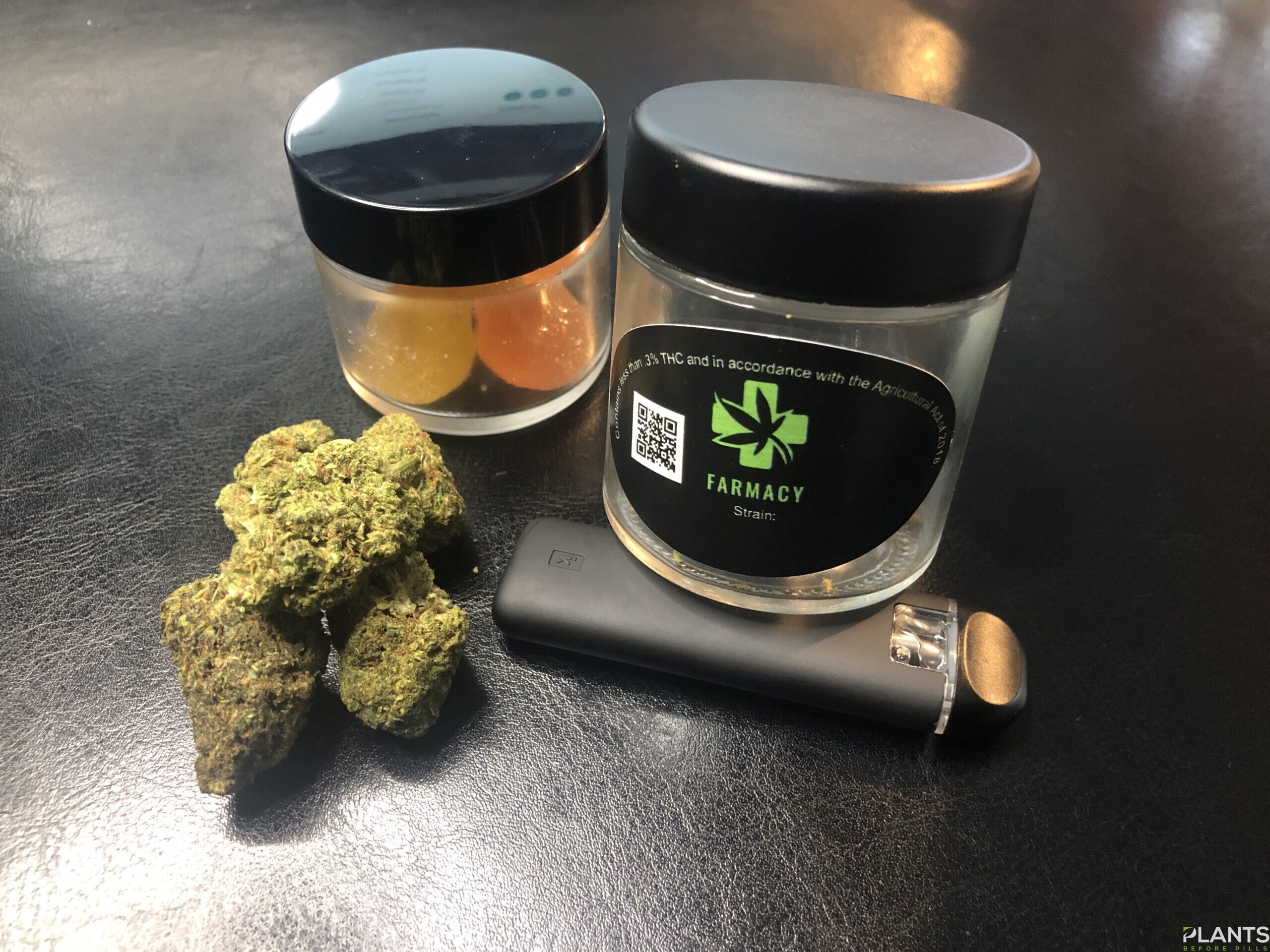
Delta 8 THC is one of the newest, most potent forms of cannabis available today. It has taken the world by storm in recent months and doesn’t appear to be going anywhere anytime soon.
We had the opportunity here at the PBP Corner to sample a handful of Delta 8 products from the Official Farmacy recently and wanted to share with you all what we thought of them.
What is Delta 8?
For you newbies out there, Delta 8 THC is a potent cannabinoid that can be smoked or ingested orally. This chemical compound interacts with receptors in your brain to produce various effects like euphoria, increased energy levels, relaxation, reduced anxiety, creativity, and talkativeness, among others, depending on how much Delta 8 you consume.
Delta 8 THC is a lesser-known cannabinoid that has been shown to have properties different than delta 9, the most well-known cannabinoid. It is thought that this might be because it binds more selectively with CB2 receptors in the brain. Delta 8 THC is also less psychoactive and less likely to cause anxiety or paranoia. It’s all about that Delta 8 Feeling!
Now with some background information on Delta 8 itself, let’s take a look at the products the good folks at Official Farmacy sent us.
What we reviewed:
- Sour Diesel Sativa Pen
- Delta-8 Vegan Gummies (Mixed Berry)
- Delta-8 Flower (Hawaiian Haze – Currently not on the website)
To start, we tried the Sour Diesel Sativa Pen. One of the first things we loved about it is just how small and discreet the piece was! It is about a small to medium-sized USB flash drive size and almost looks like one too. This is excellent because it can easily fit into your pocket or a small purse and not take up too much space and looks very inconspicuous.
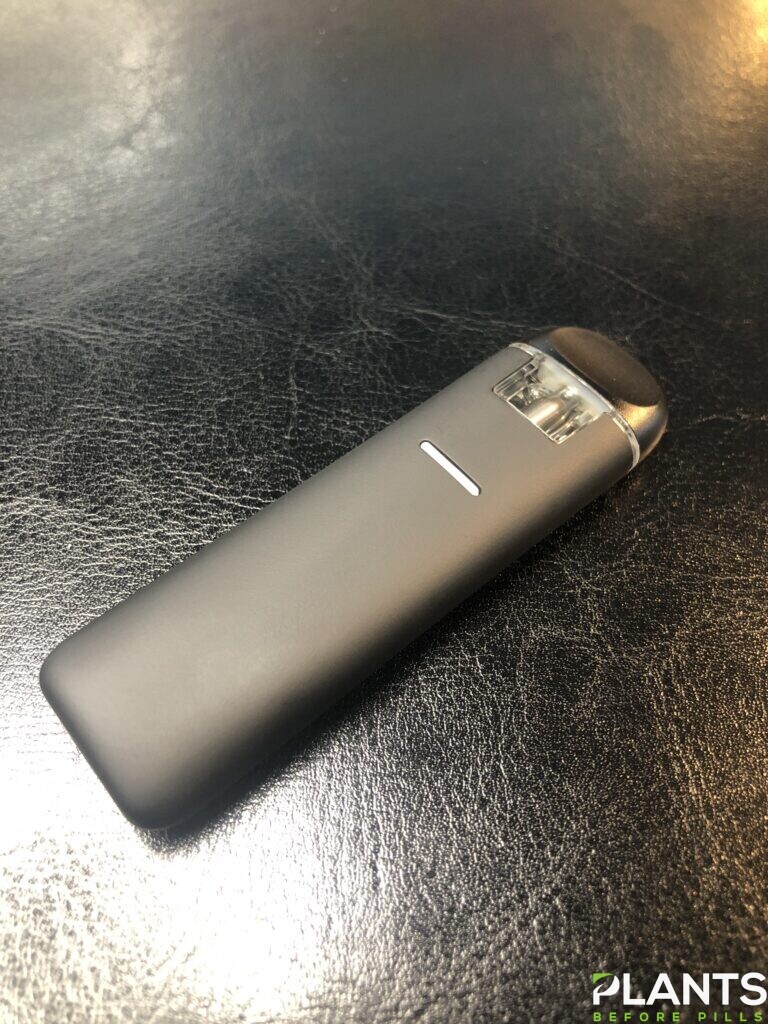
The draws from the vape pen were smooth, and the odor was very minimal, making this ideal for indoor or small space use. We noticed that occasionally, it was a bit difficult to take a hit (perhaps the oil itself got clogged in the heating element?), but a quick blow OUT of the device and then back IN typically did the trick! Overall the unit was very nice and gave a nice mellow yet potent buzz.
Next up were the Delta-8 Vegan Gummies (Mixed Berry). They were delicious, and the consistency of them was excellent! The flavor was just enough to give you a punchy fruit burst while masking the taste of the Delta 8 THC within them.
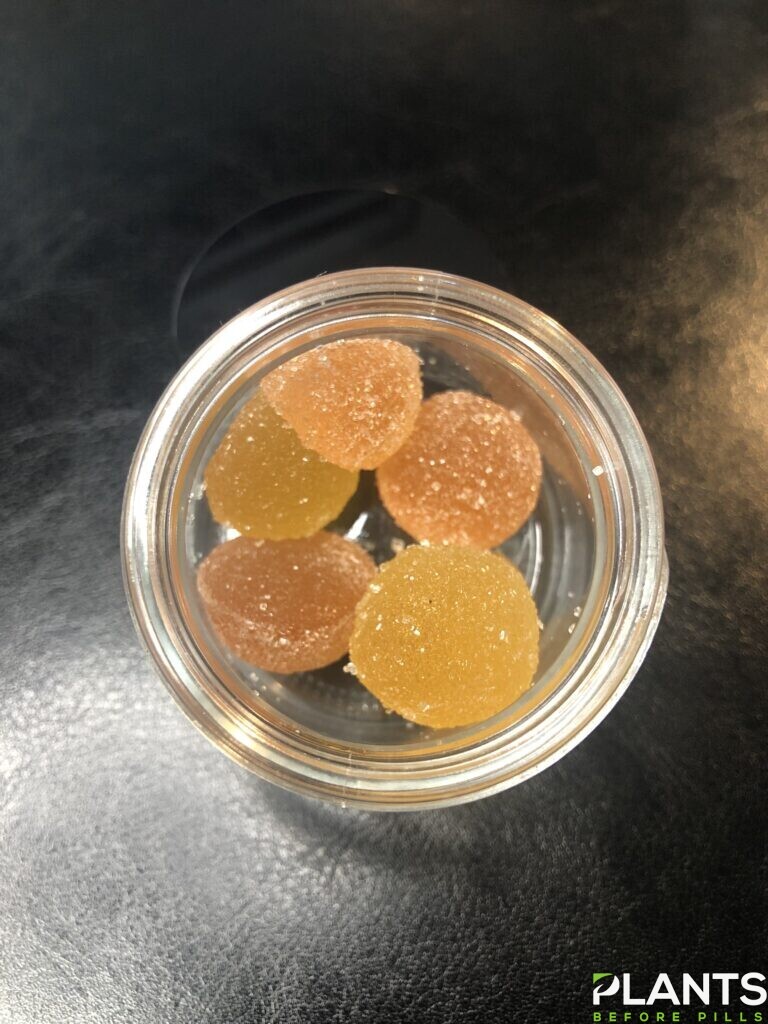
The gummies were a medley of mouth-watering flavors, including Mixed Berry, Peach, and Melon. The high from them was also very smooth and pleasant. We would give them a try again in the future.
Last but not least was the Delta-8 Flower. Right off the top, we could tell that the flower was very fresh and hand-trimmed with delicate hands. The buds were green and aromatic and so so tantalizing! You can see for yourself below:
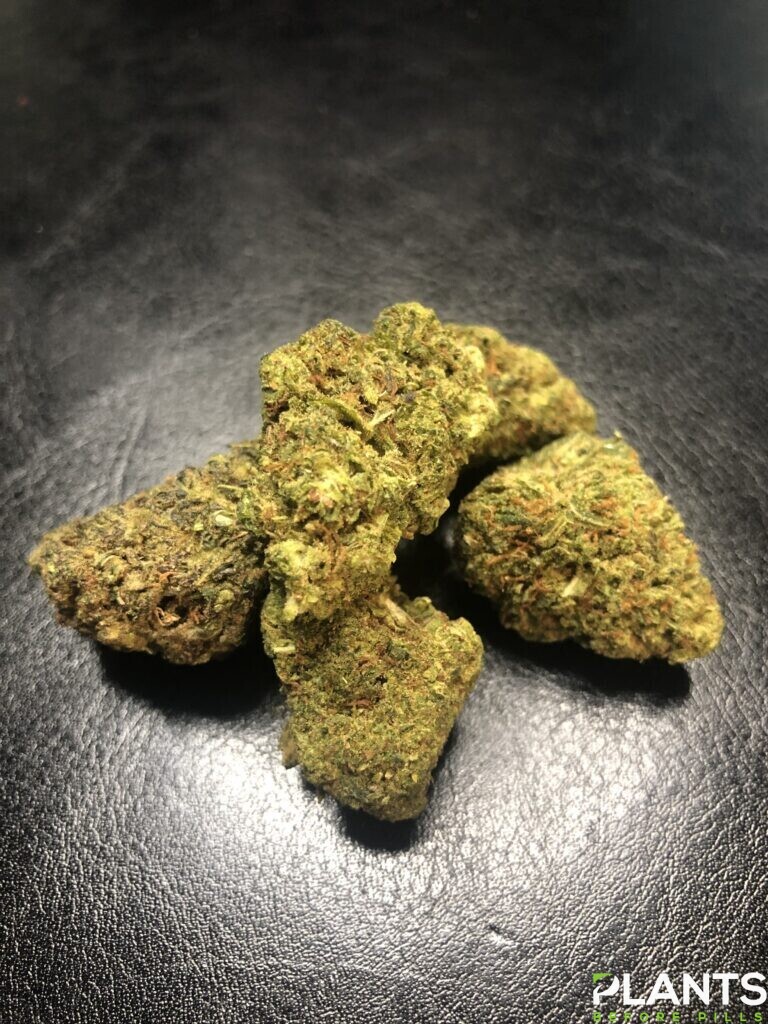
We were the most “skeptical” about this product, as many Delta 8 flower products claim to be potent and aren’t. Often, they are sprayed with distillates to give an extra kick; however, that’s not what you want in a flower product. The active compounds should be derived within the plant itself, and this particular strain seemed to be just that! Aside from just how aesthetic the buds were in their container, the flower packed a nice dreamy lift into the stratosphere of relaxation and bliss.
Conclusion
Of all of the products we tried from the Official Farmacy, none of them were even remotely disappointing. As a matter of fact, the products were so good that we are likely to keep ordering them once our supply here at the PBP Corner is out! Nothing but A’s around the board for them, so a big Kudo’s to Josh for sending us the products!
You can get more information by visiting their website at www.officialfarmacy.com or checking out their Instagram page @officialfarmacy
Medical Disclaimer:
The information provided in these blog posts is intended for general informational and educational purposes only. It is not a substitute for professional medical advice, diagnosis, or treatment. Always seek the advice of your physician or other qualified healthcare provider with any questions you may have regarding a medical condition. The use of any information provided in these blog posts is solely at your own risk. The authors and the website do not recommend or endorse any specific products, treatments, or procedures mentioned. Reliance on any information in these blog posts is solely at your own discretion.
-
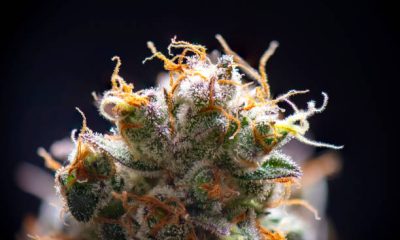
 Cannabis 1013 months ago
Cannabis 1013 months agoExploring the Powerful Profile of Sour Diesel Terpenes: Aroma, Effects, and Uses
-

 Cannabis 1013 months ago
Cannabis 1013 months agoWhere to Find the Best Weed Stores in Calgary Without the Headache
-
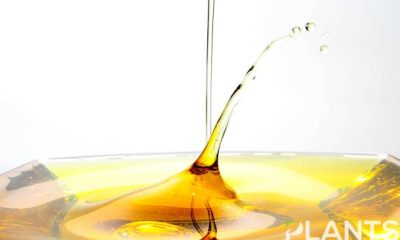
 Videos3 months ago
Videos3 months agoLive Resin Explained: A Potent Cannabis Extract Guide
-
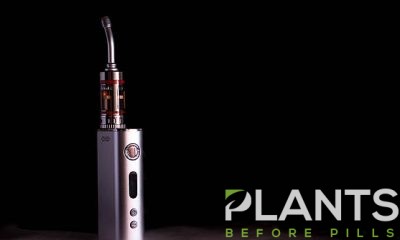
 Cannabis 1013 months ago
Cannabis 1013 months agoThe Future of vape hardware manufacturer: Innovation Quality and Compliance
-
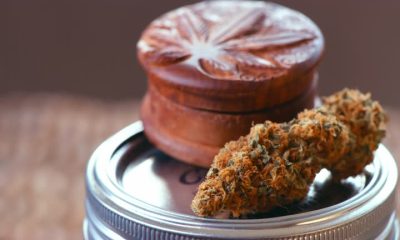
 General2 months ago
General2 months agoIntroduction to Buying Marijuana Seeds
-

 Cannabis Business3 months ago
Cannabis Business3 months agoBenefits of Partnering with a Cannabis POS Provider
-
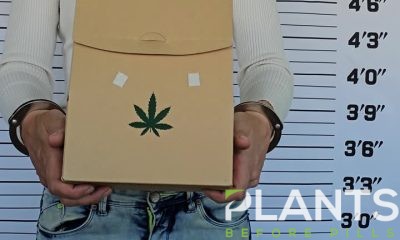
 Videos3 months ago
Videos3 months agoSame Day Weed Delivery Surrey: Fast, and Discreet Cannabis
-
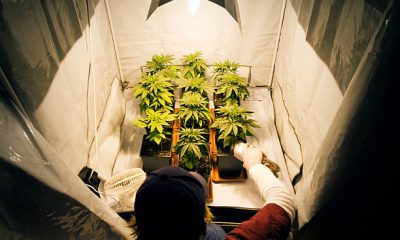
 Cannabis 1012 months ago
Cannabis 1012 months agoThe Complete Guide to Growing Marijuana Tohumsuz


